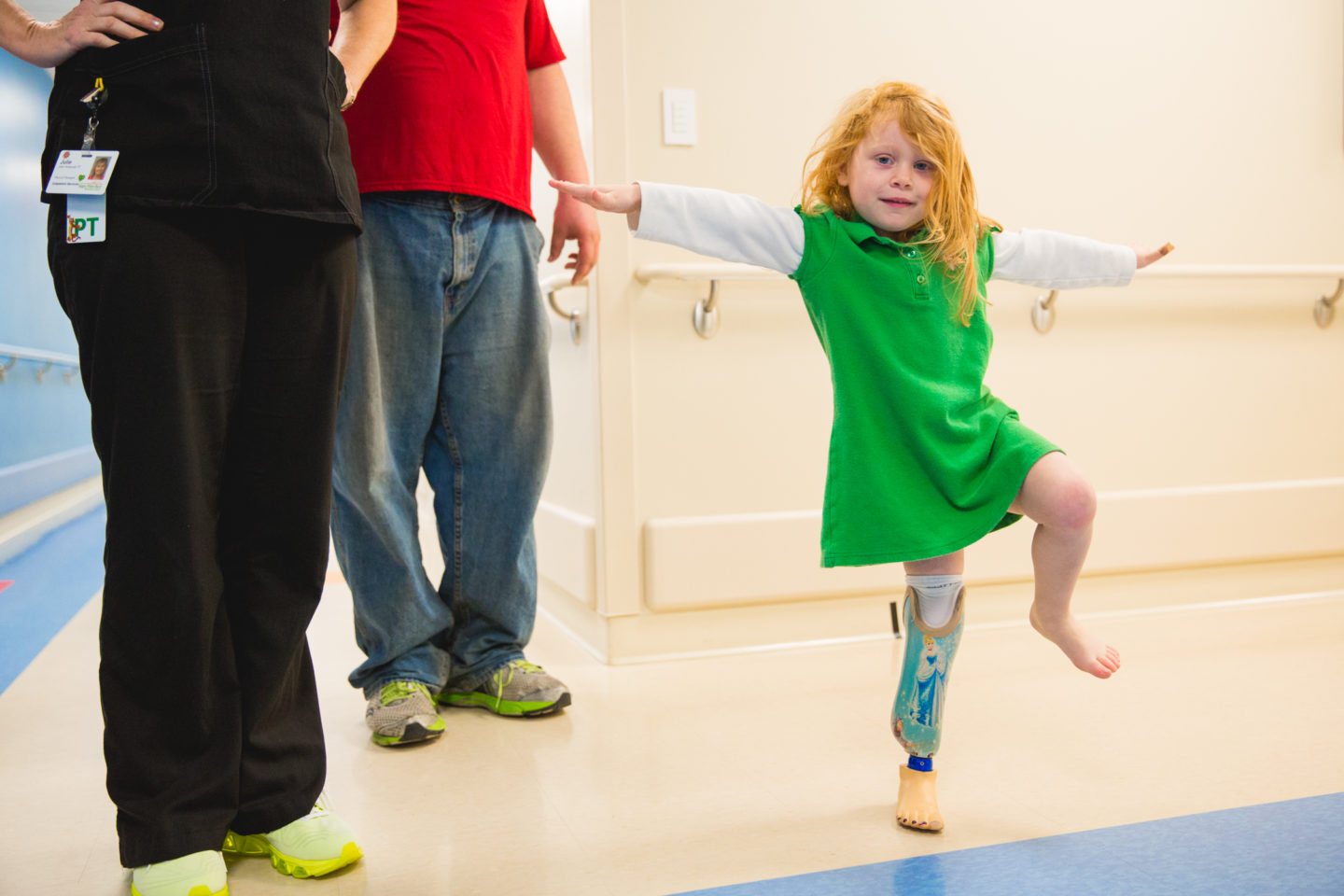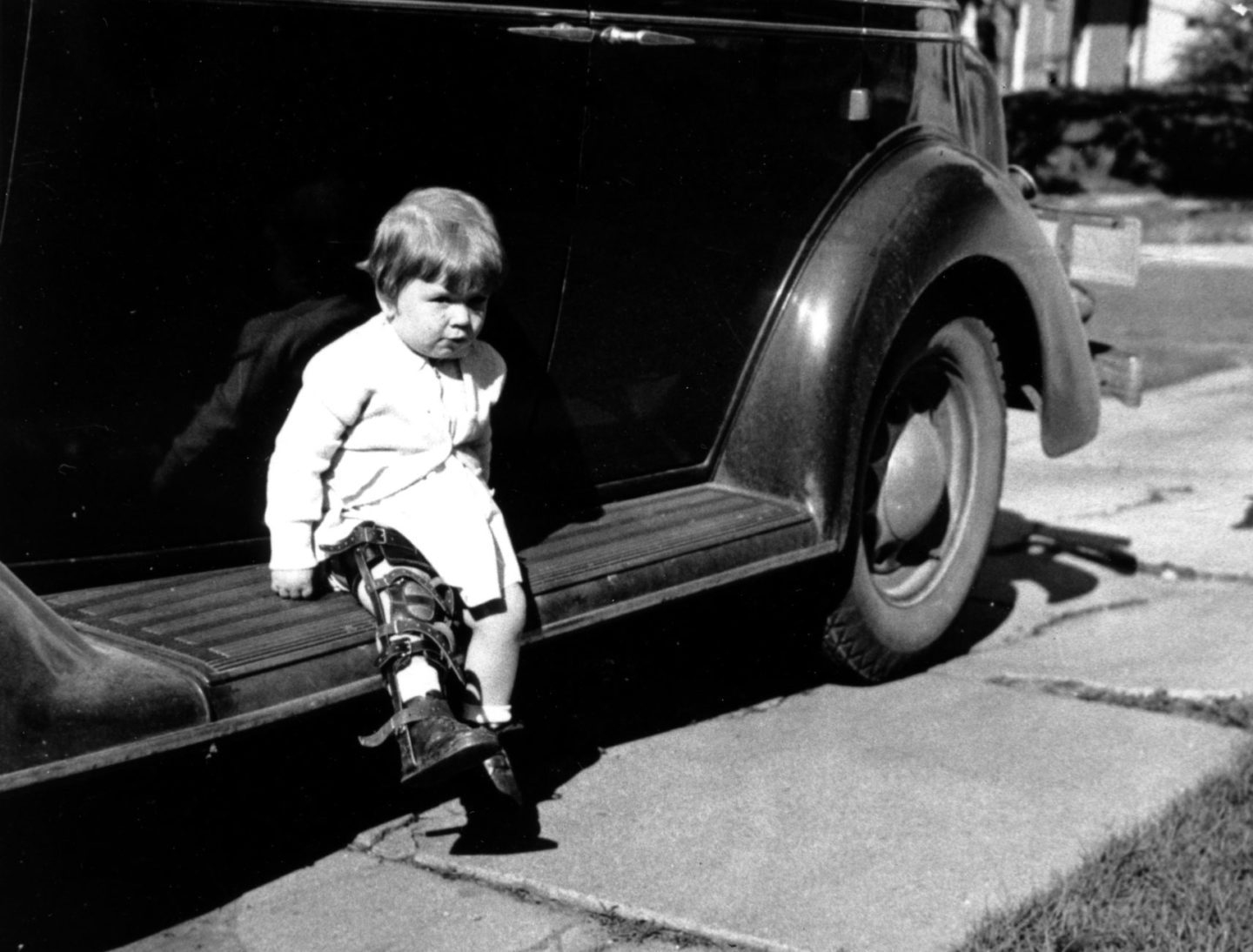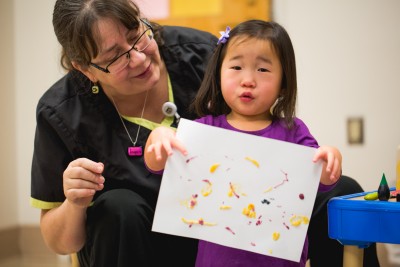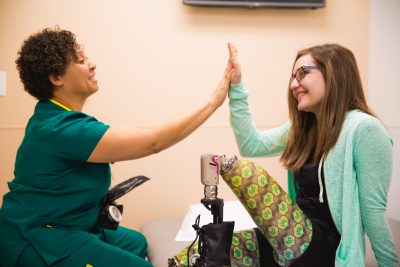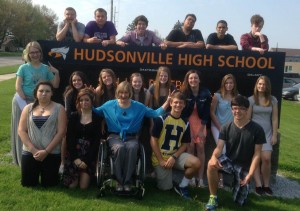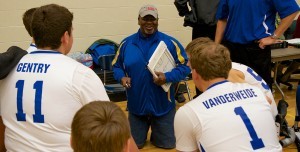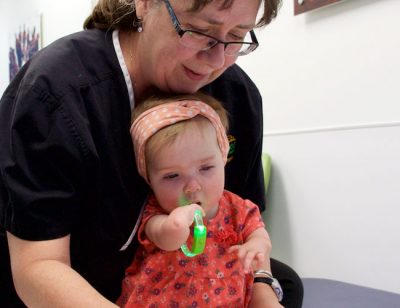
Customized Treatment
Treatment plans are crafted to meet the unique needs of each patient, including young people with a broad range of congenital amputations and syndromes, acquired amputations and those undergoing frame treatment for limb lengthening or angular correction and limb salvage. We develop and coordinate programs to be utilized by local therapists and agencies in the patient’s home community which is especially important when patients come from a distance.
Taking the First Steps
An evaluation should be made as soon as possible after your child’s birth or amputation. We can discuss a treatment plan and provide information about resources and other support services available to your child and family. Our team also can provide second opinions.
What to Expect
Patients generally visit the center two to three times a year. Your child’s schedule depends on circumstances unique to him or her. We’ll assess your child at each visit on things like orthopedic condition, growth and developmental needs.
We provide medical care, therapy, orthotic and prosthetic fittings and management through Mary Free Bed’s Orthotics & Prosthetics + Bionics department. We also work with our Motion Analysis Laboratory, where experts use sophisticated technology to study the way your child walks and moves. Test results help doctors understand how to better treat your child’s condition.
Who we Serve
Young patients come to us for a wide variety of conditions, including:



